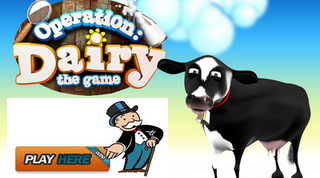News
Gut-Brain Connection Applies to Calves, Too

“The microbial community in the gut is the most prevalent and diverse in the body,” Gull shared on the Calf Distinction blog. “Both beneficial and harmful organisms reside there, and produce metabolites that are in constant communication with the immune system.”
Just as the gut-brain relationship is being heavily explored in human health, it appears to be a significant factor in the health of animals, too – including calves.
Gull said animal research has shown that stress, which can interfere with normal brain function, can trigger a cascade of events that eventually lead to sickness in calves. The process includes:
-
Calves experience stress, which inhibits signals from the brain being sent to the gut.
-
Gut function is impaired due to changes in microbial population, the mucosal layer, and tight junctions of the gut.
-
Intestinal permeability may increase, opening the door to pathogenic organisms that can make calves sick.
-
When the balance of “good” versus “bad” bacteria in the gut is upset, opportunistic organisms that are a normal part of the microbiome may flourish and make calves sick. Examples of these organisms are Coccidia, Pasteurella, and Mannheimia haemolytica.
Gull said long-term stress also can alter immune function in calves, leaving them less capable of responding to vaccines they receive that are intended to help them ward off disease.
According to Gull, protecting the gut-brain relationship requires a multi-pronged approach. It starts with easing common stressors related to nutrition, transportation, handling techniques, environmental conditions, and weaning.
But even with the best rearing efforts, calves are going to experience stressful periods. Gull said her observation has been that the calves that handle stress the best are the ones that keep up their feed intake in spite of the stress.
She said supporting the gut microbiome with nutraceutical products like direct-fed microbials and probiotics can bolster the populations of healthy organisms in the digestive tract and keep calves feeling good and eating well.
“If we are going to be successful in reducing the incidence of disease, and the need for antibiotics, we are going to have to level up our nutrition game to account for immune support and gut health in our nutrition programs,” stated Gull. “Doing so will help to mitigate the effects of stress by improving the gut environment.”























